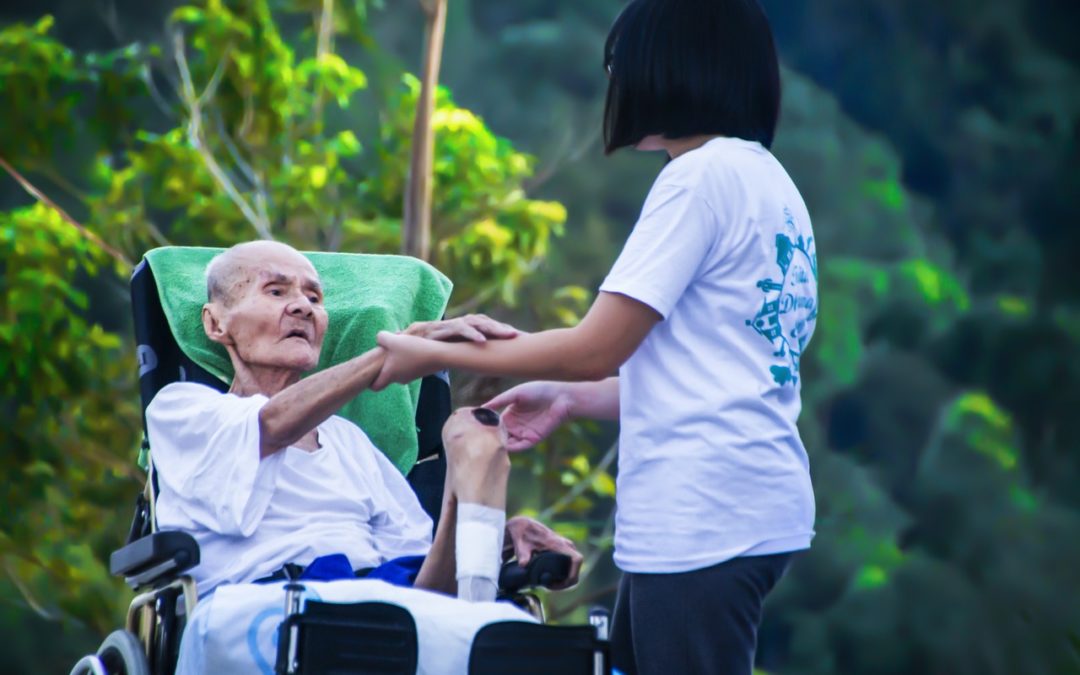Millions of people around the world suffer from chronic diseases such as: cancer, Alzheimer’s, heart disease, COPD and many more. This means millions of friends and family members will be affected by their loved one’s diagnosis, and will feel the stresses and responsibilities that come with it.
In our previous article, Dealing with Chronic Disease, Licensed Mental Health Counselor Glenn Barron gives advice to patients struggling to cope with their diagnosis. In this article, we focus on guidance for the patient’s immediate caregiver.
The caregiver, whether it’s a parent, son/daughter, sibling, spouse, or friend, will play a vital role in the patient’s life. They will help manage the person’s care, assist with day to day tasks, coordinate between family members and the professional care team, and be a major emotional support for the patient. Because of this, caregivers face their own unique set of challenges, mental strain and emotional exhaustion. It’s extremely important they take care of themselves in addition to their loved one. Here’s a few things to remember as a caregiver to someone with a chronic illness.
Don’t Overwork Yourself
If you are the main caregiver for a person with a chronic disease, you should be careful not to over-extend yourself. Barron, who runs a local support group for patients and caregivers, says, Thecaregiver might think they have to go 24/7 and can’t stop. But they should know their limitations. When it’s time to eat, sleep, take a break… everyone needs to understand why they have to take a break and rest.
Caregiving can be emotional, distressing, frustrating and can even take a physical toll. For example, if you now have to physically assist the patient in and out of the bed or bath you may begin to experience the physical strain of caregiving. But more often, the stress of your role may cause poor sleep or you may find yourself turning to junk food or fast food for the convenience and comfort.
Do not let your self-care fall to the wayside. You’ll provide better care and support for your loved one if you’re rested, healthy and looking after yourself. Barron advises the main caretaker to call on other friends and loved ones of the patient if they find themselves being burned out and needing a break.
Establish Healthy Boundaries
It’s important to maintain healthy boundaries between yourself and your loved-one-turned patient. For example, some people may push themselves to cater to their loved one, even when they know they need to take a break. They might feel guilty or fear their loved one will be mad or upset if they say no, and this overrides their better judgement.
A good boundary would be saying ‘this is just not a good time for me to be doing that.’ … It’s not being selfish, it’s being smart, and being wise. Barron says. We tend to think other people’s things are more important than ours, so we give in, and then we are mad at ourselves, and over time we become resentful of the person asking for these things, and it’s just not healthy.
It’s important to ask for help from others, or just say no when you need to.
Communicate Carefully
As caregivers, we often find ourselves at a loss for how to respond when someone is talking about a serious and devastating life change, like being diagnosed with a chronic disease. Barron points out people have a tendency to add a “silver lining” to the situation, and to say things like, “everything happens for a reason.”
Though that sounds very positive, it can be sort of toxic to someone who’s sitting here with a diagnosis thinking ‘really? What’s the purpose of me having cancer?’ Barron says. Sometimes if you don’t know what to say it may be better to say nothing and just sit there and listen.
Barron also suggests saying things that validate the person’s situation and strength, while instilling a message of hope. For example, you could say: I am so sorry you’re going through this. It must be very hard. But you’ve made it through a lot already, and with help, you can get through this too.
It’s important to be sensitive and careful with how you communicate. People often minimize extreme situations in an attempt to make the other person feel less stressed or afraid. However, this tends to send a “get over it” vibe to your loved on, rather than a supportive and understanding one. The most important thing is to listen to your loved one without judgement, and be there for them when they need to talk.
Don’t Put Your Life on the Backburner
As the main caretaker, you may find it’s a full-time job to support your loved one. You may take care of the patient at home, while still working at your daily job. You might feel overwhelmed with your duties, and put your own life on the backburner. It’s important to your mental and emotional health that you continue doing the hobbies and activities you love, so you can still feel like yourself at the end of the day.
Online Resources
Below are several links to help caregivers deal with the stress of caring for family members or loved ones with a chronic illness.
Caregiver Resource Guide:
https://www.cancer.org/treatment/caregivers/caregiver-resource-guide.html#Basics
10 Tips for Family Caregivers:
https://caregiveraction.org/resources/10-tips-family-caregivers
Caregiver Stress: Tips for Taking Care of Yourself:
If you are finding your responsibilities as a caregiver stressful or overwhelming, consider joining a support group, or reach out to one of our therapists at Family & Child Development.

